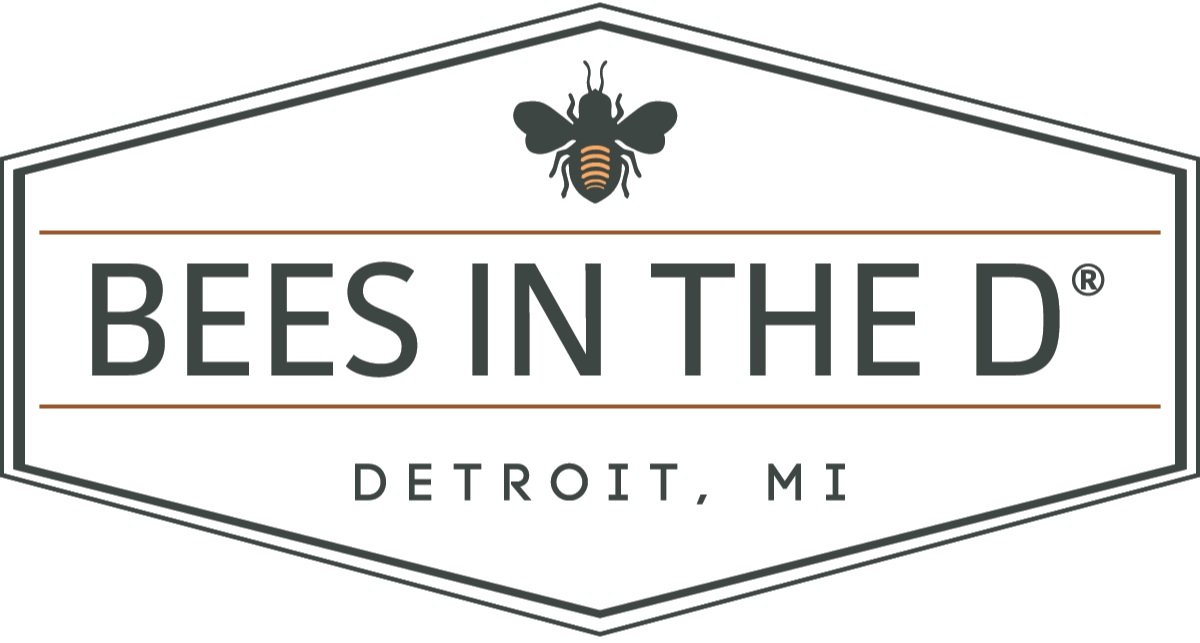Detroit Is Abuzz With Sustainably-Focused Honeybee Gardens
As the city and greater metro area of Detroit adjusts to its new place in 21st-century America, it is helped along in the process by a few familiar faces– and by ‘few’, I mean several hundred thousand flying, buzzing, honey-suckling pollinators. Yes, I’m talking about bees. Bees have emerged as an unlikely source of happiness for a greater Detroit area that, in many ways, is still striving to make the transition from its role as the diesel-clogged heart of the nationwide automotive industry into something more sustainable. With the help of inspiring nonprofits like Bees In The D, a massive influx of Detroit bee hives is poised to help this city along with that transformation.
While many may consider bees intrusive pests, the pollen they create is a vital building block of our entire ecosystem. Were bees to die out entirely, the environmental domino effect that would follow could have serious implications for the welfare of our entire food supply chain. Considering that 90 percent of all food worldwide is producedby about 100 different crops, and 71 percent of those crops are the result of bee pollination, the impact of their extinction would be felt by the vast majority of the world population. To learn more about the issue and the role we humans can play as caretakers, I sat down with Brian Peterson-Roest, founder of the Bees In The D’ nonprofit.
Image courtesy of Bees In The D
Since it was founded in 2016, Bees In The D has gone from a passion project in the back of a fifth-grade teacher’s van to an organization responsible for building just over 200 new hives in five counties around Detroit, which in total makes up over 60 bee colonies throughout the area. “I joke with people that bees have become the new panda,” says Peterson-Roest, referring to the World Wildlife Federation’s famous ‘Save the Pandas’ campaign that began in the 1980s. Following the success of that initiative, there are many out there looking to ignite that same passion for conservation as a way to protect other endangered species that remain fundamentally important to the sustainability of our environment. Thanks to the efforts of groups like Bees In The D, that same fervor is slowly growing into a place of action. “People are starting to realize the importance of our pollinators, to our food industry and to the food chain itself,” says Peterson-Roest.
To say the nonprofit has been a success is quite an understatement. In just five years, what started as one man’s idea after attending a two-week beekeeping course has blossomed into an expansive organization with ten board members and a network of over 200 volunteers. And while one might expect there to be a certain degree of difficulty with getting city officials on board with a concept like bee importation, the level of push-back was a non-issue. “It’s amazing the doors that the bees have opened up,” says Peterson-Roest, who since 2016 has become an adjunct professor at the very same university that initially inspired him to work with bees.
Image courtesy of Carolein Van Oijen
It should come as no surprise that a top priority for Bees In The D is education. Members of the organization travel to different schools and community centers, teaching children (as well as the occasional adult) about common misconceptions about honeybees and the degree of harm they pose to humans. “I usually start with a side-by-side picture of a yellowjacket, which is a wasp, and a honeybee,” says Peterson-Roest. A major sticking point for many is that honeybees, unlike the more aggressive wasps and hornets, are very docile insects. While wasps freely sting humans and other animals, honeybees die after using their stinger, making it a last-resort tactic.
Currently standing at 63 locations throughout the state, the nonprofit is showing no signs of slowing down. Next year, Bees in the D plansto open a $1.1 million botanical garden center, flush with 300,000 bees spread across five different hives. As what is expected to be the crown jewel of the organization’s accomplishments, the center will serve as an educational hub, including beekeeping and gardening courses.




